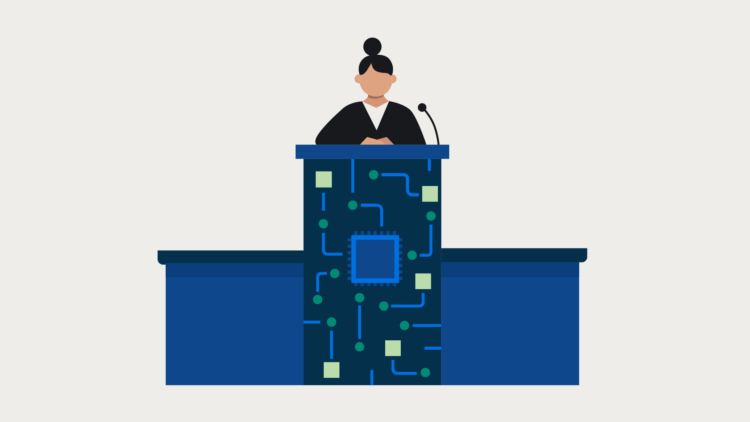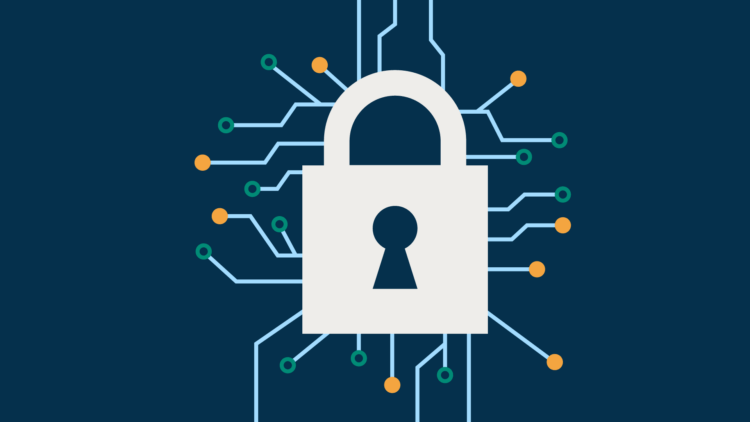Neurotechnology is one of the many frontiers opening up in our tech-intensive society. While this technology surrounding the brain, nervous system, and their functions holds much promise, this territory is still largely uncharted.
From the perspective of legal professionals, what will be the legal implications of neurotechnology and how will it impact the legal industry itself? We explore these themes further below.
Legal professionals must stay up to date on emerging trends in the legal industry, such as neurotechnology. AI and automation are two such trends, and their interaction with neurotechnology could result in even more profound changes for attorneys. Check out the Legal Trends Report to learn more about the state of the legal industry.
What is neurotechnology?
Neurotechnology is a catch-all term for any technology that
(1) monitors or assesses brain or nervous system activity, or
(2) directly affects brain or nervous system activity.
There are numerous examples of contemporary uses of neurotechnology to measure brain activity. These include electroencephalograms (EEGs), where electrodes are placed on a person’s scalp to measure electrical activity in the brain, and MRIs, which measure changes in brain blood flow.
What’s more, neurotechnology can actually influence neural activity. For example, deep brain stimulation is used to decrease tremor from Parkinson’s Disease. Spinal cord stimulation is used to treat chronic pain. Transcranial magnetic stimulation (TMS) uses placement of an electromagnetic coil against the scalp to treat symptoms of depression and improve mood.
The most cutting-edge neurotechnology is still in the works. This includes brain-computer interfaces (BCIs) such as those being designed by the Elon Musk-owned Neuralink. Neuralink is seeking to create a neural implant which allows a user to communicate with—and even control—external computers. Other companies are also designing BCIs, with long-term views toward using these devices for cognitive enhancement or even work-related training.
How does neurotechnology impact the legal field?
Neurotechnology is an emerging field that presents both potential benefits and concerns for the legal industry. It is likely to affect how lawyers practice law, and it will also have legal implications that impact society more broadly.
Lawyers could certainly use the benefits of neurotechnology for a demanding and often stressful occupation. In an industry where depression rates are high, the use of technologies such as TMS could have a profound impact—and even save lives. Neurotechnology could also allow many attorneys to function with conditions that were previously disabling, such as Alzheimer’s or Parkinson’s Disease.
But what if neurotechnology shows potential for cognitive enhancement, allowing legal professionals to be more efficient and effective in their work? While many attorneys would welcome this enhancement, would this result in pressure on all attorneys to follow suit, whether they wanted to or not? Without some guidelines or regulation in this area, neurotechnology could actually increase professional demands on lawyers.
Other workplace pressures for attorneys could arise with neurotechnology. For example, this technology might be able to measure whether an attorney is completely focused on the task at hand. A recent report for the Law Society of England and Wales put forth the concept of lawyers switching from hourly billing to charging for “billable units of attention.”
You may like these posts
Legal implications of neurotechnology

Beyond the legal profession itself, the legal implications of neurotechnology for society are profound.
Criminal law, law enforcement, and legal settings
In some cases, neurotechnology can already access a person’s mental activity to the point that one can “read” their thoughts and impulses. The technology may be able to determine a criminal defendant’s competence to stand trial. One American company has even marketed a headset that it claims will enhance criminal interrogations by monitoring a suspect’s brainwave activity under examination.
The ability to determine whether a person is lying or otherwise being deceptive is obviously useful in legal settings, such as trials or depositions. However, how reliable will this evidence be? How will it interact with a defendant’s right against self-incrimination? These battles are likely to play out over the coming decades.
Consumer law
One major area of potential commercial use for neurotechnology is in advertising and marketing. It is already common to use a person’s internet searches for such purposes. The wealth of personal information that could come from brain activity has the potential for even greater commercial utility.
For example, imagine a brain-computer interface (BCI) in the form of a neural implant or headset that is used for gaming. The software could collect the gamer’s neural data for the purpose of targeted advertising, perhaps even picking the perfect moment to induce some type of in-app purchase. Furthermore, companies could sell this neural data to each other, as they already do with other consumer information.
It is currently unclear whether existing consumer law is adequate protection against these tactics, although some states are adding legislation to extend privacy protections to neural data. Nonetheless, we can foresee future legal battles, even class action lawsuits, arising in this arena.
Employment law
Employers may come to see neurotechnology as a tool to enhance productivity and monitor employee performance. However, employers obtaining insight into workers’ emotional and cognitive states through technology would likely be seen as a grave invasion of privacy. If these neurological insights are then used to make determinations on workplace discipline, promotion, demotion, or other significant employment events, this will be the opening of a Pandora’s box filled with potential employment litigation scenarios.
Privacy law
All of these scenarios have enormous consequences for an individual’s right to privacy. Even if neurotechnology can effectively be used for interrogations, should that be allowed? Do we need regulations, or even outright bans, on the use of this technology for workplace monitoring and advertising? And what about the neural data that is collected with this technology — who will control that data?
Ethical considerations surrounding the use of neurotechnology
There are numerous ethical considerations relating to neurotechnology. Potential invasions of privacy is one example. Another is the potential ability to affect an individual’s brain function and possibly impede their freedom of thought, decision making, and action.
On the privacy front, Nita Farahany is a leading expert in neurotechnology who has concerns in this area, which she laid out at the 2024 Clio Cloud Conference. Farahany notes that the default in American law is to assume that mental privacy is protected. Yet, she notes that there are few laws that protect neural data. This gap between law and reality will need to close over the coming years.
There are also ethical implications with the potential use of brain co-processors—brain-computer interfaces that use artificial intelligence. These devices could potentially be hacked, resulting in cognitive impairment or even a person being manipulated into certain actions. These co-processors would likely require heavy regulation and strong safeguards.
Ensuring privacy and security

Since privacy and security are such great concerns with neurotechnology, there should be legal and industry frameworks for dealing with these concerns. Lawyers should play a leading role in establishing these frameworks.
Current regulation of neurodata privacy
Chile is the only country that has enacted laws specifically addressing privacy rights for neural data (neurorights). In 2021, the Chilean government enacted a constitutional amendment protecting brain activity and data. In 2023, the Chilean Supreme Court upheld neurorights by ordering a neurotech company to delete brain data collected from a former senator.
Some U.S. states have enacted their own policies on neurorights. In April 2024, Colorado enacted a law protecting the privacy of neural data. Later that year, California enacted an amendment to the state’s consumer privacy law that extended protection to neural data.
Ongoing need for regulation and industry best practices
Regulation of neurodata will undoubtedly expand to other U.S. states and countries over time. This means neurotech companies—and their attorneys—should focus on industry standards and best practices for neurotechnology. These standards could serve as the frameworks for future laws.
There are some who advocate for industry self-regulation to be favored over legislation. The concern here is that overly stringent regulatory oversight could slow down innovation in the underlying technology.
Final thoughts on the intersection of neurotechnology and the law
While neurotechnology is already presenting many potential opportunities for the legal profession, the greatest advances are yet to come. These advances will likely pose some difficulties for the legal landscape as society adjusts to this new technology. Neurotechnology will also bring potential rewards, as well as perils, for the legal profession.
Neurotechnology is just one of many of the latest trends attorneys must keep on top of. Read our latest Legal Trends Report to uncover the developments impacting the legal industry.
What is the law on neurotechnology?
There is not much legislation or regulation directly addressing neurotechnology. Chile is the only country that has imposed privacy rights for neural data, and a few U.S. states have done the same. However, existing laws on privacy and private health information could also apply to neural data.
What are the current uses of neurotechnology?
Neurotechnology is currently used to monitor and assess brain activity in numerous ways, such as EEGs or brain MRIs. It is also used to influence neural activity with procedures such as TMS to treat depression. More advanced neurotechnology is still in the developmental stage.
We published this blog post in December 2024. Last updated: .
Categorized in: Technology








